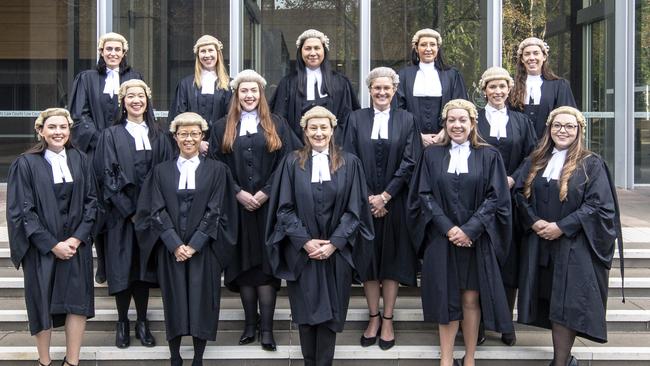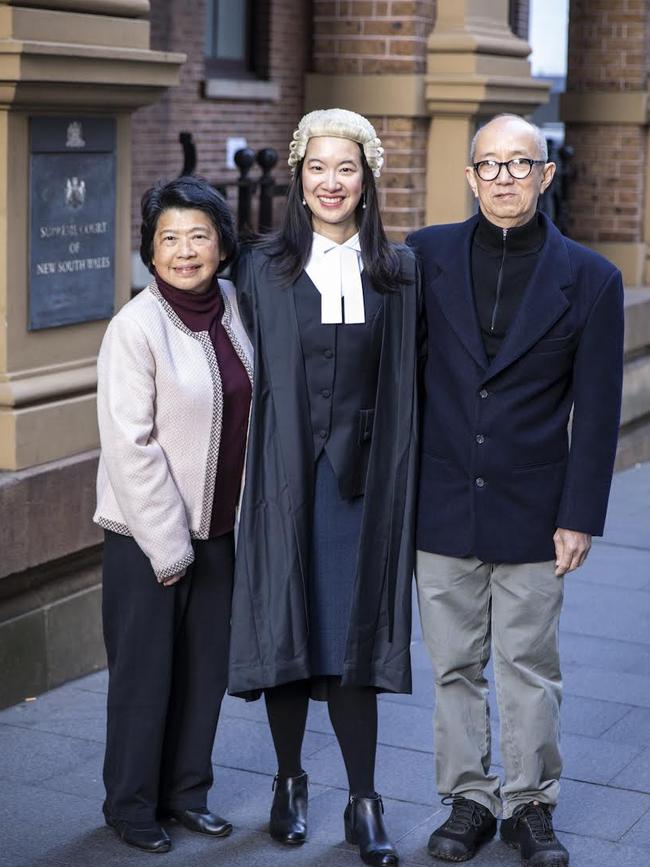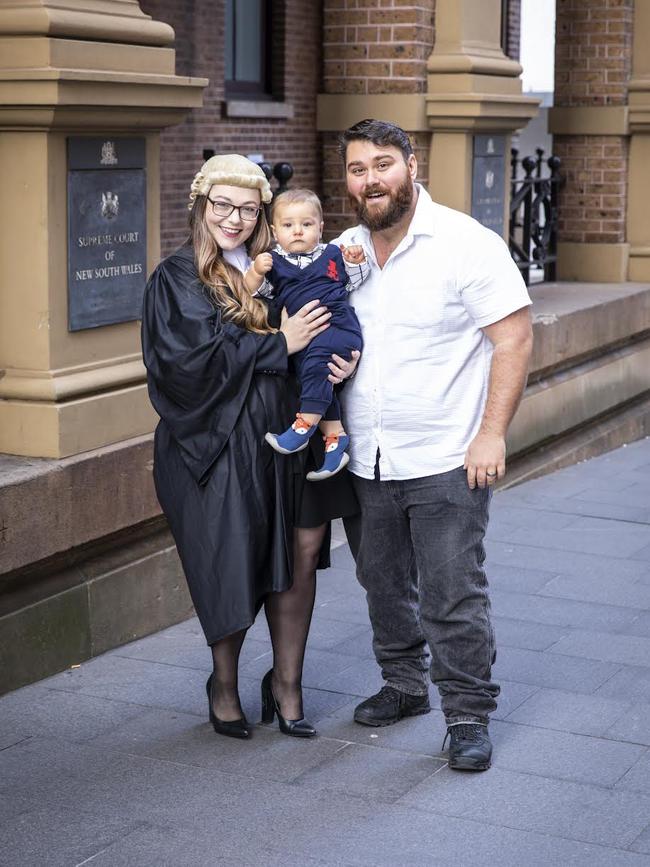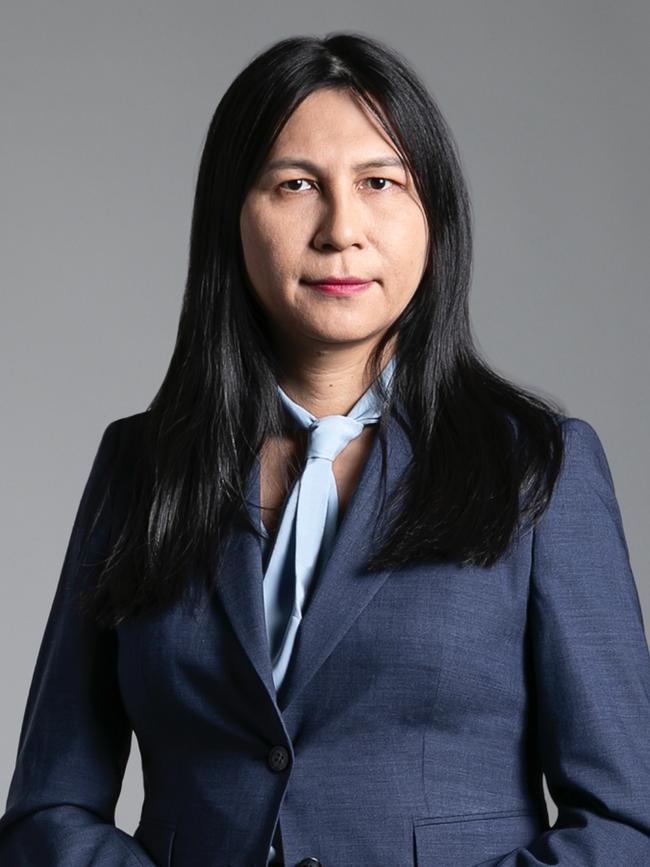Going to the Bar like ‘jumping off a cliff’
It’s a tight-knit profession where who you know can make or break you. On the centenary of women at the NSW Bar, how do young women with no connections, not only make it but thrive?

Chantal Nguyen, 33, admits she had a clear strategy when she applied for the NSW Bar, where women make up a quarter of barristers and where Asian-Australians are in short supply.
“You need to get your ducks in a row, you want to make sure you have the right skill set and, if you can, the right client base and extensive networks,” she says. “It sounds Machiavellian but it really wasn’t.”
Nguyen, the daughter of Vietnamese refugees, grew up in the Blue Mountains outside Sydney and went to a small, semirural school.
She says she had to start from scratch when she decided to become a barrister in Sydney’s competitive legal scene even though colleagues proved “very open and helpful”.
“There is an open-door policy,” she says. “I have never once had anyone turn me down if I needed help or advice. I learnt from my parents that you have to look out for opportunities, especially ones that inspire you, make the most of them, and be grateful when they come.”
Nguyen is one of 14 women among 42 barristers who joined the Bar this year and she knows she is still unusual.

“I’ve known extremely bright young Asian lawyers who say they weren’t willing to go to the Bar because it would be too hard to flourish there,” she says. “As a young lawyer, you look up at the ranks of famous barristers and judges and there is practically nobody who looks like you. When you’re starting out it can be so challenging, especially when you’re a first-generation migrant and you don’t have the family or school connections, or the cultural background that many lawyers use for that all-important leg-up.”
She pays tribute to the three judges – two men, one woman – for whom she worked as an associate before heading to the Bar, who encouraged her when she doubted herself. “Their personal belief in me gave me the belief I could do it,” she says.
Who makes it at the Bar?
Certainly, brilliant minds and an extraordinary work ethic help. But family ties, private-school backgrounds and networks are also important in a tight-knit profession where reputation and connections can make or break you. Barristers are essentially legal specialists. They work as sole traders and rely on solicitors and other barristers to refer them work.
As the NSW Bar celebrates 100 years since the first woman joined it, the figures show that while 60 per cent of law graduates and 53 per cent of solicitors in Australia are female, only 25 per cent of barristers are women at the Bar.
One of the most senior barristers in NSW, Kate Eastman SC, says going to the Bar is a bit like “jumping off a cliff”.
“There is no guarantee of income,” she says. “There is no guarantee that you are going to have work. We like to say we are very collegial at the Bar, but your friends can also be your opponents, so you really have to fend for yourself.”
Eastman says the process – from becoming a barrister and finding the right chambers to getting work and progressing – is opaque, particularly for those without substantial connections.
“I’ve seen a lot of people who have come to the Bar and worked really hard but haven’t been able to build the connections to have enough solicitors to give them ongoing work,” she says.
Chauntelle Ingenito, 28, says there was no road map when she applied to the Bar.
“I am from southern Sydney, I went to the local public school,” she says. “Nobody in my family had even been to university. I don’t have a famous family, I’ve got nobody in the family in the law at all.”
Ingenito says being matched with a female lawyer as a mentor, along with participating in voluntary internships while at university proved vital.

“It was the only way I was able to get a foot in the door – and it did open up so many doors,” she says. “I’ve never been scared of doing things at a lesser rate or for free if it will help me in the long run.”
Ingenito suggests some lawyers look down on her because she carries a “Target handbag instead of Gucci”. “The law can be a bitchy place,” she says. “You have to block it out.”
Has there been disappointment and failure along the way?
“Yes, lots,” she says. “(But) I’ve learnt not to dwell on failure and look for the positives in each situation.”
The pandemic has thrown another curveball for a young female barrister with a child.
“It’s a blessing and a curse,” she says. There are no “corridor talks” and opportunities to pick up work that used to be there traditionally. That has been hard, she says.
“The benefit is that I do know how to use the internet to network, I utilise Facebook and Instagram pages and groups.”
A young mother at the Bar once would have seemed impossible and Ingenito points to a “very supportive” husband. “I wouldn’t be able to live this dream without him,” she says. “There has also been a perception that if you are a barrister, you need to have a physical presence in chambers and in court, and I think Covid has changed that for the better.”
How to make them stay
When NSW Court of Appeal judge Carolyn Simpson retired in 2018 she directed her final words in her speech to young women and men without the preferred connections, and those of different ethnic origins.
As a country girl who went to the NSW Bar she understood their struggle, she said: “Yes, it will be difficult; there is no doubt about that. Yes, you will encounter injustice, prejudice, bias, usually unarticulated. You will encounter resistance, sometimes overt, sometimes so subtle that you will hardly know where it’s coming from. But give it a go.
“You owe it to yourselves to give it a go; and you owe it to the next generation, who will, by your efforts, find it a little easier.”
NSW Bar Association president Michael McHugh SC acknowledges that although gender, ethnicity and social diversity is increasing at the Bar it “is incremental and there is still a long way to go before the Bar reflects the composition of the society we live in”.
“The association’s current strategic plan prioritises diversity initiatives, and it is heartening that there are signs of increased diversity among new barristers,” he says.
Equitable briefing practices, policies around sexual harassment, mentoring, wellbeing initiatives and leadership programs point to an evolving Bar that is more receptive to women.
Ada Lim, 41, another first-year barrister, says the Bar rewards passion and hard work. Lim, who spent her early life in a refugee camp after her family fled the Khmer Rouge, worked as a doctor in her first career. In her spare time she piloted planes, and it was reading crash reports that sparked her interest in the law.

Despite topping her law school she was unable to score an interview for a clerkship – traditionally the gateway to the top-tier law firms.
“I was a non-traditional candidate in many ways,” she says. “These things are complex.”
Lim says she wasn’t fazed by the rejection. Older than the average law graduate, more self-assured, she could run her own race. In the end she settled on a small, generalist commercial litigation firm where she found the work invigorating.
Says Lim: “When I changed careers from medicine to law I made a decision that I wasn’t going to hide. I saw the change in career as a chance to reinvent myself, an opportunity to define who my public persona is. I was never out as a queer woman as a doctor. I’ve found the Bar to be a welcoming, inclusive place.”
For women, particularly without connections, the NSW Bar may be difficult but not impossible to conquer.


To join the conversation, please log in. Don't have an account? Register
Join the conversation, you are commenting as Logout